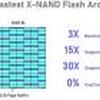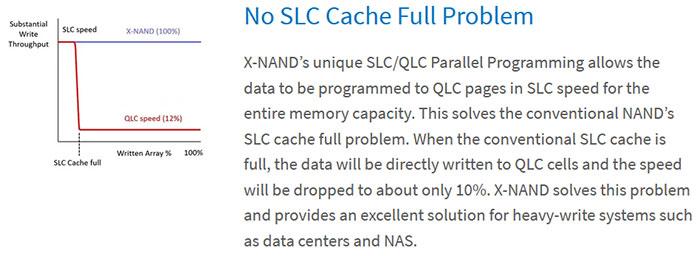SSDs with quad-level cell NAND memory are slowly getting accepted, however, there are certain disadvantages to using them. In addition to the reduced lifespan, the write speed is slower a certain extent as well.
Neo Semiconductor, claims to have developed a technology that will allow NAND memory with four bits per cell to operate at the same speeds as single-level cell ICs. The company claims in a white paper that it can attain the speeds of slc-nand at the same chip costs as qlc memory while maintaining the same size of the chip. When compared to mlc (two bits per cell), the data density per package is equivalent, albeit the researchers do not specifically specify how many bits per cell are stored.
"Technological leaps have a history of driving innovation, so the expectations for NAND flash memory becoming faster by more than one order of magnitude are high," said Andy Hsu, founder and CEO at Neo Semiconductor Inc. "Imagine the possibilities when X-NAND QLC flash memory offers higher bandwidth than conventional SLC flash memory."
Its X-NAND design divides 3D flash memory into 16-64 planes rather than the usual 4. With no increase in production costs. Sequential read and write rates may rise by a factor of 27 times and 15 times, respectively, as compared to the current state of the technology. A smaller chip surface area and lower power consumption are both required at the same time (to achieve the same capacity). Furthermore, the production costs should be at or below the level of those for qlc memory. It is not yet known how well the concept would perform in more demanding and longer-lasting jobs, but TLC and QLC chips, according to the developers, would profit from the approach.
In our believe key to this all would be endurance. Higher transfer rates in situations that benefit from them may result in more wear, which may result in lower reliability. The company says it is currently in discussions with NAND manufacturers about potential partnership opportunities and that it already has 22 patents in-house.
QLC Memory with SLC Performance: A New NAND Technology Is In the Works




